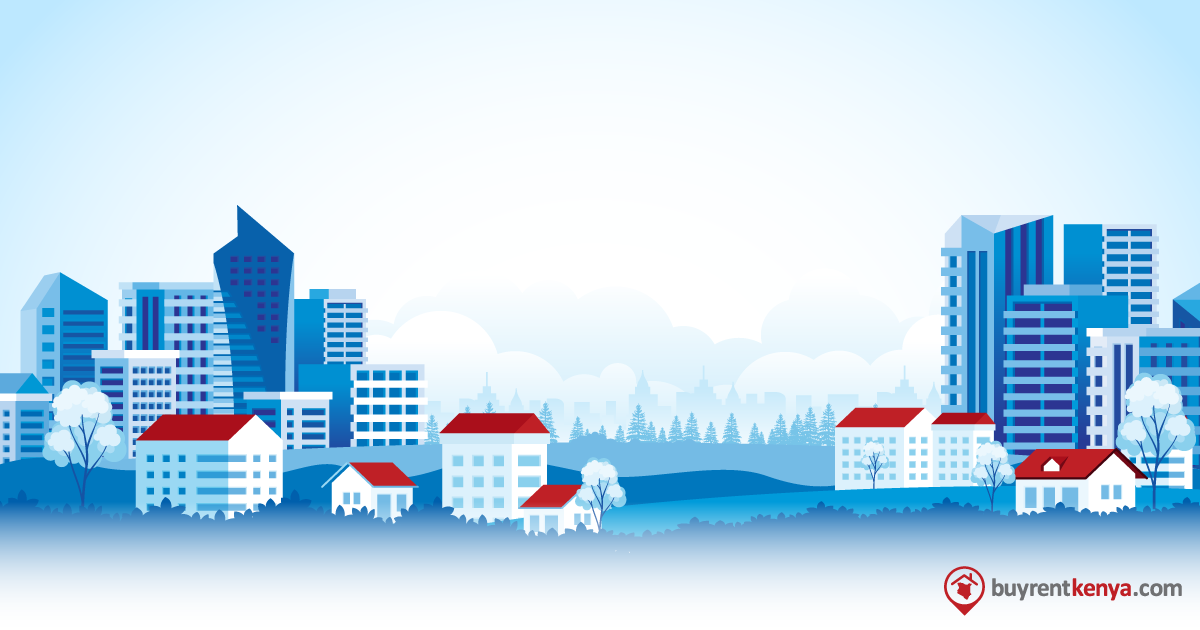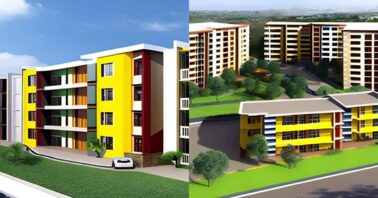Kenya has the largest industrial base in East Africa and therefore offers an appealing investment opportunity. Over the years, Kenya has continued to draw a lot of investors due to its strategic position, diverse economy, and entrepreneurial force. Kenya is a regional financial hub and the main entry point for East Africa. These are some key factors investors wish to capitalize on. The real estate sector is a beneficiary of foreign investment and continues to grow as evidenced in the real estate trends witnessed in 2022.
In this piece, we’ll examine the industry’s performance in 2022 and make predictions on what the market can anticipate in 2023 and how these trends will affect investors and developers.
Table of Contents
Growth of the Real Estate Sector
Kenya’s real estate sector has expanded rapidly, as seen by the increase in its share of the GDP from 10.5% in 2000 to 12.6% in 2012 and 13.8% in 2016. This growth can be is due to factors such as:
- Infrastructural developments
- Rapid growth in population and urbanization
- Recovery of the economy from Covid 19
- Increase in investor confidence
Infrastructural Developments
Improved infrastructure has been a major catalyst to the growth of the Kenyan real estate sector. Key developments witnessed include new and improved roads and upgrades of key airports.
Central Bank of Kenya recorded that the construction sector during the second half of the year was at 6.4 percent compared to 6.8 percent in the same quarter of 2021. This is due to the continued Government investment in infrastructure projects.
One of the most significant developments includes the 27.1km Nairobi Expressway, which was officially commissioned on the 31st of July 2022. The expressway opened up the region to investments and boost the country’s economy. There has been a notable increase in demand for housing ranging from 15% in areas like Athi River to as high as 67% in Westlands.
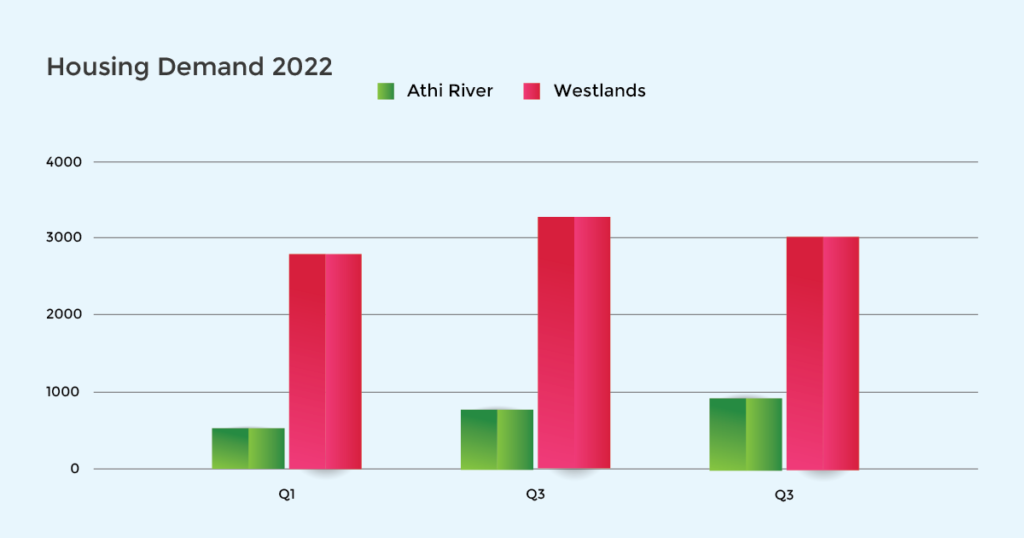
Some of the other projects in the pipeline include the Nairobi Commuter Rail project, the Nairobi-Nakuru Highway project, the Lamu Port-South Sudan-Ethiopia Transport (LAPSSET) corridor (with the first 3 berths complete), Standard Gauge Railway Phase 2A, and the Nairobi Western Bypass. These projects will improve connectivity and increase property values in the respective areas.
Rapid Growth in Population and Urbanization
According to the World Bank Population Growth Data, Kenya’s population currently stands at 54 million and is growing at 2.3%p. a which is 1.3 points higher than the global average of 1.0%p.a.
This has a direct impact on real estate, as the demand for housing especially rentals rises. Areas with increased demand for rentals in Nairobi include Kilimani, Kileleshwa, Karen, Ngara, Kiambu Road, Ruaka, and Riverside. In the coastal area, demand has increased in Nyali.
Economic Recovery
As the Kenyan economy is gradually recovering from the effects of Covid 19, the Central Bank economic report records a 7.2% economic increase. This can be attributed to better business health.
The ripple effect has been felt by the commercial real estate sector which led to an increase in the demand of office space. Warehouse for storage demand has increased as the import and export sector opened up as well.
Increased Investor Confidence

Kenya’s real estate industry offers the potential for better rates of return than other jurisdictions. Additionally, foreign investors can very easily enter Kenya’s real estate market. In Kenya, foreigners may purchase “commercial class” land.
In Kenya, foreigners can acquire real estate in their names. However, subject to certain restrictions, the Lands Act (6/2012), the Land Registration Act (3/2012), and the Constitution (2010) all give anybody the right to purchase and possess land in Kenya, whether they act alone or jointly with others. This is important since a lot of international investors have been led astray into thinking they can’t own real estate in their own names.
More foreign businesses are setting up more local and regional operations in Kenya. This is because of Kenya’s diverse economy, strategic location, and numerous aviation routes. Another attraction for foreign businesses is Kenya’s strong human resource base. Kenya is a “young” nation, with over 79% of its citizens under the age of 35. Its cities, especially Nairobi, are renowned for having a huge number of highly educated, multilingual, and English-speaking professionals as well as a long history of entrepreneurship.
Trends to Anticipate in 2023
Commercial
- Office
With the improving economy and increased business health, the Kenyan office market has quickly expanded. There has been a 30% increase in office demand between H1 and H2 2022 from an average of 2,700 to 3,500 leads in the two halves of the year.
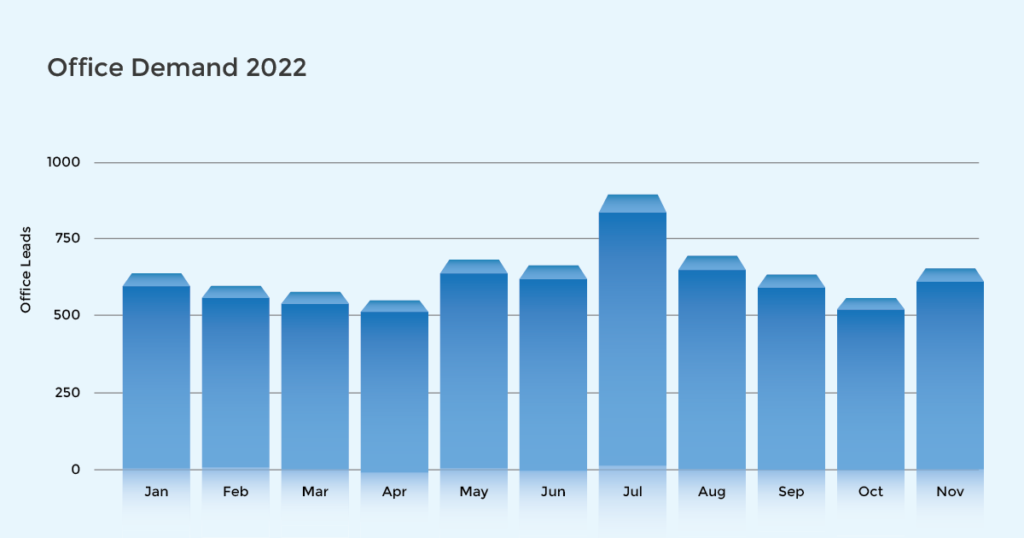
Some of the trends to anticipate is the growth of serviced offices. Consumer preferences are changing and there is more demand for developments of international standards. The dynamics of office design and space are continually changing. To stay ahead of the change, developers should look into offering offices that are semi-fitted, with amenities such as kitchen cabinets and walls. Green building technology is another trend gaining momentum. Green technology can boost worker productivity, lowers operating expenses and offers a safe and healthy environment for employees.
READ ALSO: Co working: The Future Of Office Space in Kenya
Another trend to look out for is smart offices. Businesses are coming up with smart and inventive ways to fight employee burnout. This has led to an increase in demand for contemporary workplaces that features such as gyms, balconies, and cafeterias.
2. Warehouses and Industrial Parks
With the country returning to normalcy after the covid 19 restrictions, the import and export industry has resumed business. This has led to an increase in demand for warehouses in the country. The new market however demands warehouses in areas that are calm and peaceful, as opposed to Nairobi’s crowded, and outdated warehouses. To do this, the new industrial parks are now relocating to Nairobi’s outskirts, such as Kiambu and Machakos counties. Here they are still conveniently located near the main airport and train hubs.
Residential
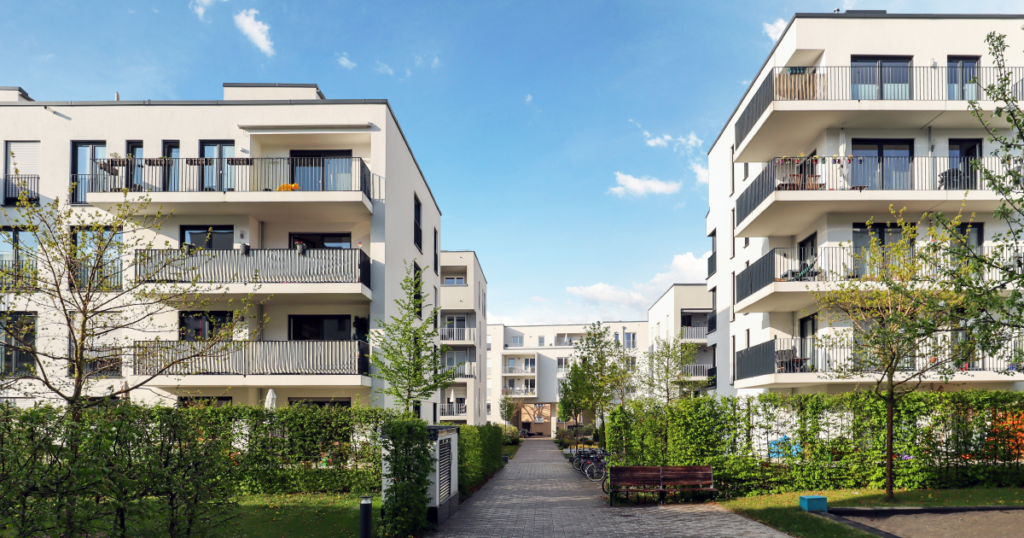
With a rapidly increasing population, the demand for housing has continued to rise. The nationwide housing deficit stands at 200,000 units annually. Renting accounts for the majority of the housing market in Kenya with 80% of the Kenyan population who live in cities living in rentals. Only 20% of the people who live in cities own their own homes.
Affordable housing is a trend that developers need to adopt. This is in line with the government’s plan to create affordable housing for all Kenyans. Developers should get into low-cost housing techniques and embrace the use of low-cost house construction techniques. Alternative building technologies such as green building can cut down construction costs by up to 50%.
There has also been a rise in the demand for gated homes. Gated neighborhoods on the outskirts of the city, near the Coast, and in Naivasha quickly attracted attention. This can be attributed to the Covid 19 pandemic that sparked a demand for gated communities with larger homes for members. These communities are mostly set in satellite towns, the best-performing satellite towns include Kajiado Town, Kitengela, Athi River, Nanyuki, and Joska. In the coastal area, Diani is the best performing.
READ ALSO: Boma Yangu Project – Affordable Housing Program in Kenya
Land
Land values have increased as a result of infrastructure development, and a growing population has ensured steady demand. Investors are increasingly purchasing land with the goal of selling it in the future with expecting land values to rise.
One of the key trends that are slowly gaining momentum is developers using land as a value addition. Plots are for sale and provide returns to customers on a seasonal basis in an effort to draw purchasers.
READ ALSO: Land Banking in Kenya: Investment Opportunity or Gamble?
Conclusion
The country is slowly returning to normalcy and the real estate sector has registered positive growth in 2022. The sector anticipates an even better year ahead, business-wise. The buyers are getting more sophisticated and developers need to adjust to the growing demands.
